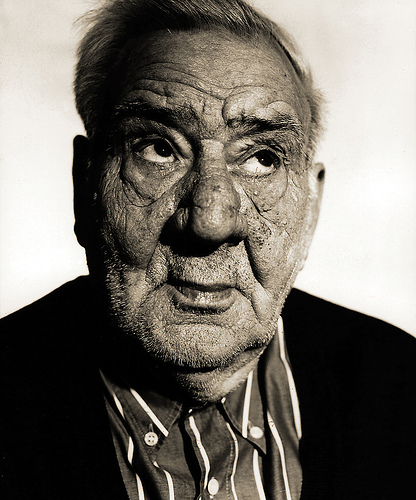 I love social media for my coaching business.
I love social media for my coaching business.
I've been attracting coaching clients and students with online social tools for the past five years. Some of my favorite clients, ever, have come from web 2.0. Many of my Coach 100 students have had extraordinary success building their businesses with online tools. School of Coaching Mastery has had a strong social presence since its launch in 2007. Heck, we even have our own social networking site!
So I'm not the coach you'd expect to say that social media could kill your business. And no, I don't mean that your Facebook addiction might keep you from working on your business as you should (although it could). And I don't mean that you should be out shaking hands at live networking events instead of using online social networking (although some coaches really should be networking live instead of online).
I mean that the actual tools of social networking, if used poorly, can cost you coaching clients. And given how time consuming a good marketing plan can be to implement, tools that actually work against you can indeed kill your business.
What kinds of social networking tools could hurt a coaching business? Anything (and I mean anything) that annoys people. And let's face it, that covers a lot of territory.
Most new (and some veteran) business and life coaches have poor marketing and sales skills to begin with, so opportunities to do it poorly are abundant. But if you screw up your elevator speech at a live networking event, you only risk annoying a few people (and if you can laugh at yourself, you'll probably make a few friends, instead). But tools that allow you to contact everybody in your network in ways or at times that they don't want, can help you annoy thousands of people with one innocent little click. Ouch!
Repeat that innocent action again and again and your coaching business will be dead in the water before you know it.
Why is annoying people such a big deal when it comes to marketing your coaching business? Well, remember that cliche: 'Long after people have forgotten what you said, they'll remember how you made them feel'? You don't want to be remembered as the annoying coach.
Question: If you were looking to hire a business or life coach and you had narrowed it down to two coaches who both seemed to meet your criteria perfectly, would you hire the one who annoyed you are the one who didn't?
Sales decisions come down to subtleties. Sometimes a client doesn't even know why they chose to hire one coach over another. You don't have to annoy someone very much to tip the scales away from you.
What do you need to avoid in order to not kill your business with social networking tools?
Well here are a few items that will help you to not annoy me. But get feedback from your own networks to find out what really bugs them.
1. Social SPAM. Any social app that's designed to spread itself automatically at the expense of annoying your network is social SPAM. The inspiration for this post is an innocuous little tool called, Boxbe, that's spreading around School of Coaching Mastery. Everytime someone I know joins it, I automatically get an invitation to join, too. I don't want to join. And I don't want to get email invitations to it several times per day. It's social SPAM and it's annoying. Plaxo is also annoying. Some poorly designed Twitter apps do this sort of thing. (And don't get me started on SpamArrest. I consider SpamArrest SPAM.)
2. Social Temptation. How often do you get invitations from Facebook or any social networking site to invite or notify everyone in your Outlook,Yahoo, Google, or other address book? How often do you do it? In my book, you get to do it once. One time. Resist the temptation to tell everybody you know about something unless they followed you or joined your group or fan page. Otherwise social temptation becomes social SPAM.
3. Social Scams. @UnMarketing just posted a link on Twitter to this blog post about scam apps on Facebook. It's easy to get tricked by these because they look like so many other apps on Facebook. Maybe you should avoid temptation and not allow every app out there to connect to your account. (While I was researching this, I came accross Scott Stratten's - A.K.A. UnMarketing - blog post on how to lose friends and tick people off on Facebook.)
4. Social Abbrev. There's nothing wrong with LOL, WTF, Ouch! and KEWL unless you use them constantly. Remember you annoying uncle, cousin, spouse who said the same things over and over until you wanted to stuff mashed potatoes in your ears? Don't be that coach.
5. Social Games. As well as gifts, etc., ad nauseum. You can have fun at work but please stay focused so the rest of us can. Sorority Life, Mafia Games, Farmville, etc., I tolerate these from my relatives (barely), but not from you (unless you find a way to combine all three, which might be interesting). Don't you feel silly posting your latest livestock aquisition on Facebook? I don't think this would persuade even Old MacDonald to hire you to be his coach.
6. Social Pics and Tags. Not all of them. Most are great. You probably don't need me to tell you not to post the pics of you throwing up at that college binge party (the real sorority life). If not, stop reading this post and get thee to a 12-step program, fast. But consider your headshot. If you coach kids, then a shot of you with your kids is appropriate, but if you coach Fortune 100 execs, maybe not. And if somebody else posts or tags you in an unflattering shot, quietly request that they take it down. If you haven't annoyed them, they probably will. If not, be prepared for radical transparency. You have no more secrets.
7. Social Compulsion. Please don't fill people's Twitter streams with constant inane tweets. They will unfollow you. Direct messages are even worse. And you're not kidding anybody by tweeting nothing but Twitter names in the hope of getting noticed. Don't tweet or post unless you have something to say and definitely don't tweet constantly.
Well that's it for now. I could annoy you with a bunch of links to friend/join/follow us, like the 'Find us on Facebook' link above, but probably more valuable to you will be for you to get some training on how to attract clients effectively, which we do in our Coach 100 classes. They start again in February and they teach what actually works.
WARNING: You'll have less time for social networking when your coaching practice is full.



 Want to know
Want to know 

 The following post concerning how long coaching client engagements should be is inspired by a conversation at School of Coaching Mastery's members-only Water Cooler Forum. A student wondered how to set up coaching client engagements.
The following post concerning how long coaching client engagements should be is inspired by a conversation at School of Coaching Mastery's members-only Water Cooler Forum. A student wondered how to set up coaching client engagements.
 Gregory Schillinger was one of the first coaches to take a chance on School of Coaching Mastery three years ago.
Gregory Schillinger was one of the first coaches to take a chance on School of Coaching Mastery three years ago.




 On September 29th, CNNMoney wrote,
On September 29th, CNNMoney wrote,  Many people find it really hard say "no". And, as you probably know, some people are harder to say "no" to than others. But not saying "no" when you need to can absolutely ruin your life, so it's important to learn to do it right.
Many people find it really hard say "no". And, as you probably know, some people are harder to say "no" to than others. But not saying "no" when you need to can absolutely ruin your life, so it's important to learn to do it right.

